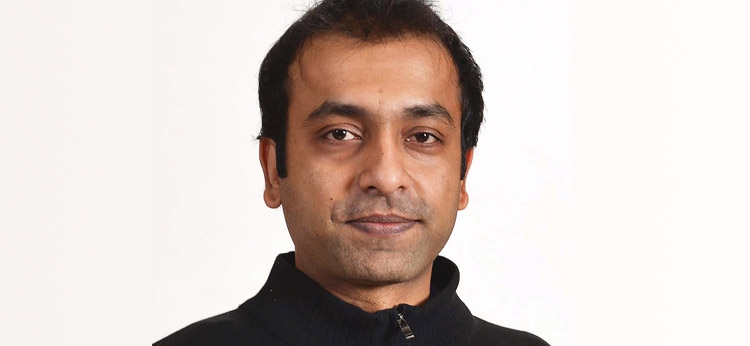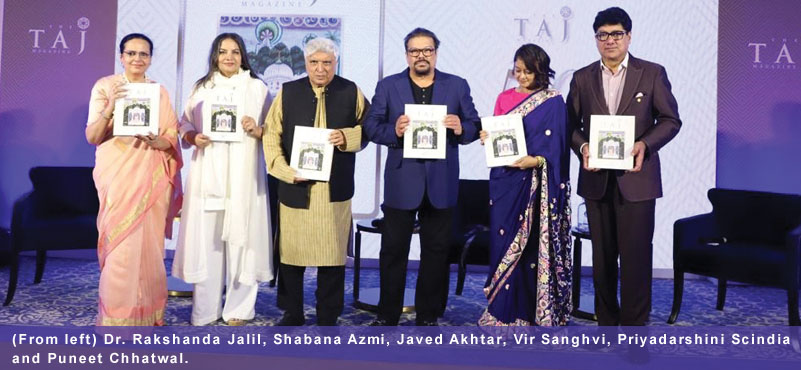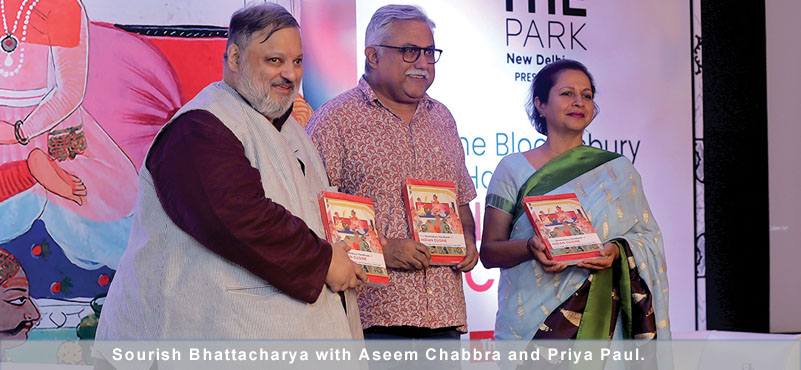Spurt in users of online bookings is swiftly creating a new trend – rise in last minute reservations. As travellers seek to make the best bargain, competitive pricing and personalised customer interface are turning out to become crucial factors in attracting clinetele, feels Hotels.com representative. E-commerce is also creating a need for service providers to constantly innovative their offerings which is, in turn, improving travel experience.

SENIOR MARKETING MANAGER, HOTELS.COM
There are no points for guessing that India’s e-commerce is in midst of an unprecedented boom. Driven by Smart phones, tablets, and growing mobile penetration in the hinterland, online businesses are becoming ubiquitous in character. Travel and tourism as a sector, too, has not been left untouched. In fact, on the contrary, according to Hotels.com, travel industry in India commands a 77% share of the total e-commerce market. Stating that over half of Indian travellers with internet enabled mobile devices, engaged in various travel-related activities like researching travel products, booking, trip management etc. on mobile platforms, Amit Agrawal, senior marketing manager opined that the trend was now percolating into tier 2 and tier 3 markets.
Illustrating the spurt in Smartphone users, he shared that “During the first nine months of 2015, more than 1 in 3 bookings on Hotels.com were made on Smartphone.”
Noting that India had fast evolved as a huge travel market; both inbound and outbound, and an increasing number of Indians were purchasing travel products online, he believed that providing great value through special offerings and seasonal promotions would help them in creating a niche for themselves. “We plan to aggressively expand our inventory of domestic hotels and also plan to provide payment options in India, soon,” he added.
Personalization of service has been one of the major outcomes of e-commerce. It holds true more for the hospitality industry that has taken elaborate measures to ensure their patrons continue with them. As a result, we have seen the growth of app-based service, as well. Ours is one of India’s first travel apps, he shared. Stating that it was compatible with wearable technology to receive helpful notifications directly on their wrist, he noted that it was not a one-off attempt to connect to consumers, but an ongoing process. “We continue to improve user experiences by updating our mobile app and websites as minor as filter options, search criteria, etc. affect consumers experience in searching for hotels via our app or website,” he said.
Besides personalization of service, it has helped boost business as well, we were informed. “Smart apps are especially beneficial while making last minute booking. Over 25% of travelers across the globe tend to book their trip with last minute deals at our website to enjoy the best hotel discounts in the first nine months of 2015,” he shared. “We are among the first to embrace Apple’s 3D touch technology which allows one-click access to the most popular hotel booking features,” he added. Crediting one of the largest hotel contracting teams in the industry, along with the knack of negotiating the best rates for its customers for their success in the sub-continent, he opined that understanding the unique traits of each market and local consumer preferences helped them optimize their product offerings. “We operate more than 85 sites, majority of which are in localized languages. The sites feature more than 17 million unique user-generated reviews from those who have actually stayed in hotels to ensure customers can make an informed choice when booking,” explained Amit.
Real-time feedback on consumers helping hotels to take quick decisions
Explaining the modus operandi of Hotels.com in bringing hotels on board to use their services, he shared that the group had extensively invested in creating responsive design on their sites exclusively for hotel partners, besides improving their tools to optimize results. “It provides a real-time and relevant feedback about how to better optimize their distribution strategy,” Amit added. Extensive use of real time feedback provided hoteliers with a private feedback from travellers about their first impressions of their hotel in real-time, enabling hoteliers to act on that feedback and potentially avoid a negative hotel review, we were told. The concept of ‘Sell Tonight’ makes it faster and simpler for hoteliers to push out same day rates and availability to travelers, he added. “Our system having the mobile app allows hoteliers with a look at market intelligence, production and inventory information right from their mobile phone,” Amit further explained. The most important attribute of taking real-time decisions, and tweaking offers to suite the clientèle’s specifications, in order to attract the most traffic has augured well for hotels, as well as for consumers who are in a better position to make an informed choice.
Being an extremely dynamic space, e-commerce has also had a profound impact on fostering new trends. One of the newest trend has been the rise of last minute bookings. “Due to the humdrum routine, travellers today are pressed for time and in many cases planning a trip in advance is difficult,” he said. “Last-minute travel is the only way for some travellers to take a vacation or short getaway,” added Amit.
Divulging that as many 25% of travelers globally opted to book their trip with last minute deals at the website, he stressed that the impact of the trend of last-minute travel, on the hospitality industry was indisputable. “Thanks to the emergence of the Internet age, our apps achieved more than 50 million downloads (globally) since the launch in 2011, while over 30% of our bookings (globally) came from mobile,” he explained. Sharing that, in India, last minute travellers included families who hadn’t planned their holidays during vacations or business executives, who usually had their necks deep in meetings; he noted that niche travellers’ preferred luxury hotels. “Many travellers in the age group of 25-35 years have begun to travel at least three to four times in a year, which has led travellers to cut costs in terms of accommodation,” explained Amit. “Hence they opt for budget hotels, especially those managed by hotel inventory companies,” he added.




































